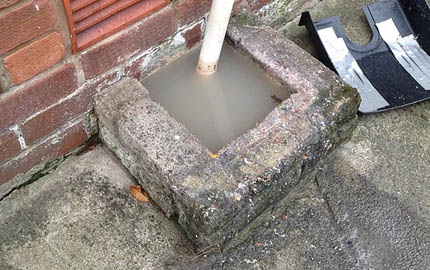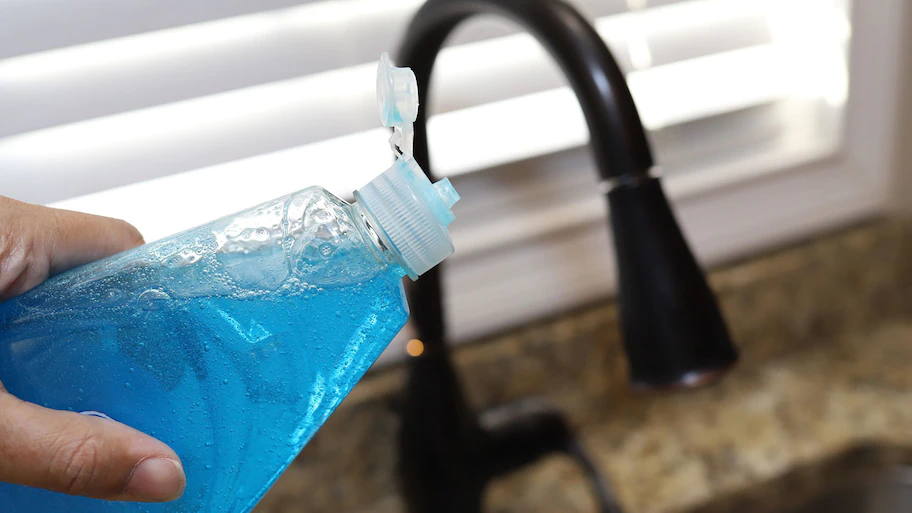We have discovered this article on 8 Tips For Clearing A Blocked Drain below on the web and felt it made perfect sense to talk about it with you in this article.

Intro
Dealing with an obstructed drainpipe can be an irritating experience, disrupting day-to-day activities and potentially creating damages to your building. Nevertheless, before reaching out to pipes professionals, there are steps you can take to attend to the problem on your own. In this overview, we'll discover do it yourself services and safety nets to take on a blocked drain efficiently.
Identifying the Concern
The first step in resolving an obstructed drain is recognizing the indicators. Sluggish water drainage, gurgling noises, foul odors rising from drains, or water support up prevail indicators of an obstructed drain. Determining these indicators early can aid protect against better complications.
Common Root Causes Of Blocked Drains
Recognizing the aspects that add to drain pipes clogs is vital for reliable resolution. Usual offenders include hair, soap residue, oil, food particles, and foreign objects like hygienic items or paper towels. Tree origins getting into underground pipes can likewise cause considerable obstructions.
DIY Solutions
For small clogs, a number of DIY solutions can be reliable. Pouring boiling thin down the drain can assist dissolve grease and particles. Sodium bicarbonate and vinegar or a mix of salt and cooking soda can work as natural cleaners. Using a plunger or pipes serpent to dislodge obstructions is one more choice.
Devices and Devices
Having the right tools available can make do it yourself drainpipe cleaning much more reliable. A plunger is a flexible device for clearing blockages in sinks, toilets, and showers. A plumbing serpent or auger can get to deeper clogs, while drainpipe cleansing chemicals can be made use of very carefully for stubborn blockages.
Safety nets
To stay clear of future obstructions, embracing preventive measures is important. Mount drain guards or strainers to catch hair and debris before they enter the pipes. Regularly flush drains pipes with hot water to liquify grease build-up, and avoid throwing away grease or solid waste away.
When to Call a Professional
While do it yourself solutions can solve small blockages, certain signs indicate the need for professional support. Consistent obstructions, foul odors in spite of cleaning initiatives, or several drains supporting simultaneously are warnings that call for expert intervention.
Selecting the Right Plumbing Solution
When choosing a plumbing solution, take into consideration factors such as experience, licensing, and consumer evaluations. Choose a trusted plumbing technician with a performance history of high quality workmanship and transparent prices techniques.
Cost Considerations
The expense of expert drain cleaning company can vary depending upon the severity of the obstruction and the plumbing professional's rates. Request quotes from numerous carriers and ask about any type of surcharges to ensure openness and stay clear of shocks.
Security Precautions
When trying DIY drainpipe cleaning, focus on security. Put on safety handwear covers and glasses to stay clear of contact with unsafe chemicals or germs. Never mix various drainpipe cleaning products, as this can create dangerous fumes.
Instance Researches
Real-life instances illustrate the efficiency of do it yourself services and the value of prompt specialist treatment in dealing with drain blockages.
Conclusion
By complying with the suggestions detailed in this guide, you can properly deal with blocked drains pipes and stop future plumbing problems. Whether choosing do it yourself services or seeking specialist assistance, prompt activity is vital to preserving a healthy and balanced plumbing system and maintaining the stability of your home.
How to Clear a Clogged Drain Yourself (And When to Call In the Professionals)
What Can Clog a Drain
Dirt Skin flakes Hair Grease Soap scum Food Offset pipes Tree roots Small objects Mineral buildup DIY Tricks to Unclog a Drain
You can fix this! Once you have identified the source of the clog (or have a vague idea), you can try one or a combination of these fixes in order to clear your plumbing.
Wire Hanger or Snake
Untangle and clear out hair from a drainpipe with a homemade snake. Use a straightened-out wire hanger with a 90-degree angle hook to locate the clog and drag out any unwanted material.
Remember not to push the clog further down to where the wire hanger cannot reach! If you need to follow up with a plunger, give it a try. Your efforts might be more successful after it’s been wire-snaked.
If you want to get fancy and don’t have a wire hanger to spare, head to the store and pick up a hand-operated drain snake. You can get one for $10-$30. It may save you the hassle, and provide additional length to reach deep into the clogged pipe.
Plunger
A cup plunger has a suction cup attached to a wooden handle. The rubber creates a seal around the drain, and increases the pressure force of the plunger.
Plunge for 30-second increments to loosen the clog. This may need to be repeated over the course of 15-20 minutes. Once plunged, run the water to flush the remaining material out of the drain.
Remember– never use a plunger if you have used a chemical drain cleaner. These chemicals can splash up from the force of the plunger and cause serious injury or burns.
Boiling Water
Hot water can sometimes break up materials into a flushable amount. Dirt, grease, and soap buildup requires heat in order to unstick from surfaces.
Take your kitchen kettle and heat your water to a boil. Once it reaches a rolling boil, pour it directly down the drain into the blockage. Carefully follow with plunging, if necessary.
Don’t worry if this takes more than one try! It can often take multiple kettles and repeated plunging in order to clear a particularly stubborn clog.
Chemical Drain Cleaner
As a last resort, pick up a bottle of chemical drain cleaner. Drain-cleaning chemicals are potent, and not very good for the environment.
You may need to wear protective eyewear in gloves before handling your bottle of chemical drain cleaner. Follow the instructions printed on the bottle, and flush with water as soon as the instructions allow. Do not follow with plunging.
Baking Soda and Vinegar
As a safer alternative to chemical drain cleaner, baking soda and vinegar can create a chemical reaction that clears tough clogs.
Combine one cup of cleaning vinegar with one cup of boiling water, and set aside. Once you have done this, pour half a cup of baking soda down the drain. Give the baking thirty seconds to settle and cover a large portion of the problem drain.
Following the baking soda, pour down your vinegar and hot water solution. Once the vinegar and baking soda combine, the mixture will bubble and fix. Let this reaction fizzle in the drain for about an hour.
After an hour, follow with a kettle’s worth of hot water. The heat and liquid should flush out any remaining material.
When to Call a Plumber
If your DIY attempts haven’t cleared your clog drain, it’s time to call in a professional. It’s not worth losing access to your kitchen sink or high-traffic bathroom. A clog in a vital area can keep you from the things you’d rather be doing, and derail your routine.
Anytime a clog is causing water to spread is a time to call in a plumbing service. What starts out as a little bit of water can quickly grow into serious, expensive water damage.
Additionally, a serious clog can result in burst pipes or serious leaks. Make sure you know when to take it seriously!
https://myguysnow.com/how-to-clear-a-clogged-drain-yourself-and-when-to-call-in-the-professionals/

I was shown that report about through an acquaintance on our other blog. Enjoyed reading our review? Please quickly share it. Let somebody else find it. We recognize the value of your readership.
Click Here